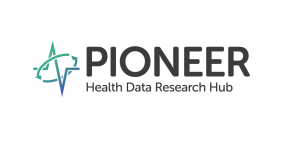PIONEER has a large database of linked, anonymised, routinely collected acute care data that will be accessible and discoverable to innovate and improve acute healthcare. This includes health processes, monitoring, diagnostics, and treatments, including empowering patients to manage their own conditions more effectively.
Acute care data from PIONEER partners is being curated and formatted from different sources so that it is research ready and can be linked with other datasets both nationally and internationally.
A data access request process has been fully developed and supports interested stakeholders to outline their intended uses of the data for research and innovation to improve patient care. Decisions about how and where to share data is strongly influenced by a body of patient and public representatives known as the Data Trust Committee. The Data Trust Committee is assisted by experts in data research, information governance and UK data law.
PIONEER’s expert services support prospective data users in several ways, for example by offering workshops with relevant patient groups, advice from healthcare practitioners, the curation of a bespoke dataset, algorithm generation, or an analytic plan.




